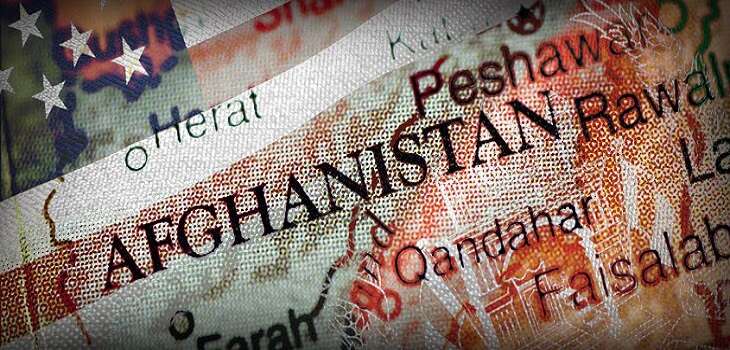Ghalib Parvaiz.
The writer is a Postgraduate in History from Quaid-i-Azam University, Islamabad…

In recent weeks, international diplomacy’s focus has shifted from the Middle East to Afghanistan where two decades of grinding war has come to an end. The US-led NATO forces managed to exit the country, making the end of the longest war in US history. On August 15, the Taliban swept to victory that has sent shock waves across the world. Particularly, the West voiced concern over the Taliban takeover of Kabul as their seizure of power is a perceived threat to global peace. Evidence suggests that the blame game begins over turbulent US exit from Afghanistan. The US’ miscalculated move of expecting the Afghan army to combat and counter the Taliban forces lacked efficacy as the Afghan government fled the war-battered country by leaving people in the midst of crisis. This indicates the unpreparedness of the Afghan government. Unfortunately, the Afghan army of 3 lac not even resisted the Taliban and succumbed to the pressure. Both the US and Afghan forces left by creating a power vacuum in the war-torn countries.
The Taliban assumed power. The foremost responsibility for the new rulers was to protect Afghanistan by averting civil war, ensuring peace and stability. However, the heinous attack at Hamid Karzai International Airport resulted in 180 civilian causalities. The IS-Khorasan claimed responsibility for the attack. This chaotic situation showed that Afghanistan has been descended into chaos because the Taliban failed to protect their own people from systematic persecution. If the instability continues, then there would be strong ramifications for neighboring countries, especially for Pakistan. For instance, the current situation in Afghanistan is triggering a mass exodus. At one point Pakistan hosted over a 4.5million Afghan refugees. According to UNHCR, 1.4 million still live in Pakistan with over 3 lac in Karachi alone. Pakistan is struggling with its faltering economy. Thus, it could not afford to host more refugees from Afghanistan amid an economic crisis.
Moreover, there are some speculations that the emergence of the Taliban will reinforce Tehreek-e-Taliban inside Pakistan. Since the Afghan Taliban captured Afghanistan, religious parties have been celebrating the Taliban’s victory in Pakistan. Besides, the Taliban revival in Afghanistan intensified the threat of cross-border infiltration in Pakistan. Such situation could multiply the risk of sectarian issue that has remained prevalent in Pakistan. Although paramilitary forces dismantled terrorist infrastructure through kinetic operations back in 2017, yet TTP’s re-emergence once again poses threat to Pakistan’s integration.
Now the question is what constructive role Pakistan has to play amid the looming Afghanistan crisis? Pakistan’s policymakers urge the UN that the best way forward is international engagement as opposed to isolation. Isolating the Taliban regime will bear no fruitful result, as the global community has already witnessed the last twenty years of the long war in Afghanistan that has brought in suffering in South Asia. Furthermore, the Pakistan government continues to convince the Taliban for forming an inclusive government without any ethnic and sectarian tensions, and put emphasis that the Afghan land should not be the base for terrorists who could threaten the west. The global community has put forth these conditions prior to recognizing the Taliban regime. Regional stability and peace are impossible without addressing the Afghan imbroglio. Therefore, Pakistan is leaving no stone unturned in resolving the Afghanistan crisis.
In a nutshell, all eyes are on Afghanistan. The country’s new reality requires discarding old lenses and the world must engage with the Taliban to prevent future regional instability. The two decades of war wreaked havoc. It has destabilized peace and security. The war cost $ 6 trillion along with much bloodshed, yet no positive results were achieved. All regional countries should play a positive role to resolve the Afghan conundrum. Peaceful Afghanistan is key to regional peace and development. The Afghan Taliban has managed to capture the country, but they need international recognition to rule the country smoothly. Therefore, they have no option except the formation of an inclusive government, protect human rights, and do not allow their land for terrorist activities against any country.

